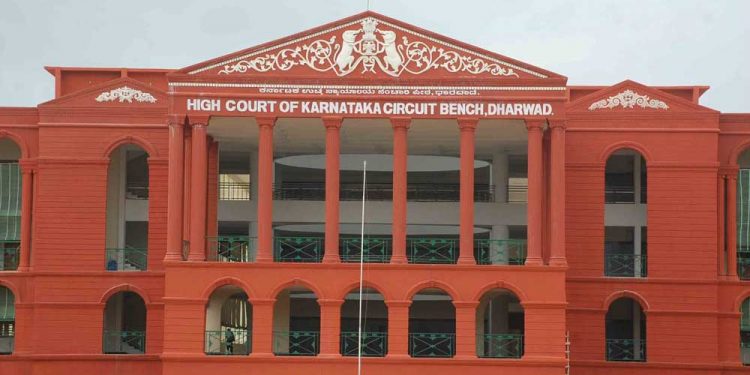In a judgement dated January 21, 2021, the Karnataka High Court Dharwad Bench ordered that a wife cannot claim partition in the ancestral property of her husband.
The court also said that during the lifetime of a male Hindu, neither his wife nor children can claim partition in his self-acquired property. The right to seek partition arises after the dean of a male Hindu.
Case:
The High Court was hearing an appeal against the Judgment and Decree of Lower Court, whereby 1/3rd of share of the property was given to the Plaintiff (brother/son).
Plaintiff, First Defendant and Sukhraj, are all sons of Bhaktawarmal, who executed a will on 03.04.1982, giving life interest to his wife, Sundar Bai, in the property which was a residential building.
The will directed that after the death of Sundar Bai, three sons should enjoy the property in equal rights till their lifetime and thereafter the property should go to the Grand Children.
Sundar bai (Wife) enjoyed property till her death, and later her 3 sons inherited the property. The First defendant was collecting the rents from some portions of the property that had been let out and giving 1/3rd share in rents to the Plaintiff until March 2004.
After sometime the Defendant No.1 stopped paying rent to other brother and claimed that Sundar Bai had executed a will dated 19.05.1995 in his favour in respect of the property.
The main contention of the first defendant was that by virtue of Section 14(1) of Hindu Succession Act, the mother became the absolute owner and thus derived testamentary capacity to make a will in his favour.
Karnataka High Court Dharwad Bench
After hearing the arguments of all parties, the Court concluded that, in the context of Section 14(1), a pre-existing right can be defined as a right possessed by a woman to lay claim on the entire or a portion of the property; it can also include the right to inherit the property by birth, as in the case of Hindu coparceners, the right to succeed to self acquired properties of a male Hindu, and the right to claim maintenance.
If a husband abandons his wife and fails to pay her with maintenance, she can undoubtedly claim maintenance as a legal right, and this right extends over the husband’s self acquired property, albeit she has no right to share in her husband’s self obtained property throughout his lifetime.
Furthermore, the Court held that if a husband executes a will in respect of his self-acquired property or his interest in coparcenary property as contemplated in Section 30 of the Act, creating only a life interest in favour of his wife, such a bequest cannot be said to be in recognition of a wife’s pre-existing right to maintenance.
As a result, the Court determined that the bequest in favour of Sundar Bai, because it exceeded the actual amount she would have received if Bhaktawarmal had died intestate, was a new interest established in her favour. Though it was limited, it did not fall outside the purview of Sec. 14(1) of the Act, hence Sec. 14(2) of the Act comes into play.
The Court gave an illustration to explain the issue:
If a male Hindu with self-acquired property dies intestate, leaving behind a wife and two boys, his heirs, including the wife, each receive a third share.
If the property is ancestral, the wife does not receive a third portion; rather, her share is reduced to one-ninth by using the law of notional partition. As a result, a wife’s pre-existing right is limited to one-third of her husband’s self-acquired property and one-ninth in the event of ancestral property.
ALSO READ –
Uttarakhand Becomes First State To Give Co-Ownership Rights To Wives In Husband’s Ancestral Property
READ ORDER | Bombay HC Orders Son & Daughter-in-Law To Vacate Flat Of Elderly Parents Citing Harassment
Supreme Court Orders Brother-in-Law To Pay Monthly Maintenance To Widow Wife & Child
Supreme Court Orders Brother-in-Law To Pay Monthly Maintenance To Widow Wife & Child
Woman Files FIR Alleging Triple Talaq, Gang Rape; Man Claims False Case Since He Demanded Loan Money Back
ALSO WATCH –
Irretrievable Breakdown In Marriage Law | Mukul Rohatgi on 50% Property Share to Divorced Wives (2013)
Join our Facebook Group or follow us on social media by clicking on the icons below
If you find value in our work, you may choose to donate to Voice For Men Foundation via Milaap OR via UPI: voiceformenindia@hdfcbank (80G tax exemption applicable)






























